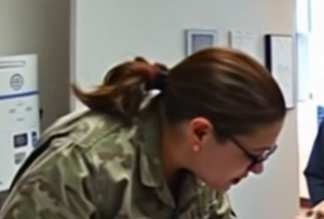The call from the hospital came without warning, slicing through the quiet of the afternoon like a bolt of lightning. The nurse’s voice was urgent but steady:
“Your daughter has been brought in. You should come immediately.”
I barely remember the drive there. All I could think about was Meadow — my bright, gentle seven-year-old — and the fear in the nurse’s voice. When I burst through the emergency room doors, the world around me blurred into a haze of fluorescent lights, rushing staff, and impatient beeping monitors. None of it mattered. I needed to see my daughter.
When I finally reached Meadow’s room, my breath caught in my throat. She looked so small in that hospital bed, surrounded by machines that hummed and blinked softly. Her hand rested atop the blanket, still and fragile. The sight hit me harder than any shock I had ever experienced.
Her eyes opened slowly as I stepped forward. Confusion clouded her face, and a faint apology slipped from her lips:
“Mom… I’m sorry.”
A simple sentence — yet it shattered something deep inside me. Why would my child feel the need to apologize for something that clearly wasn’t her fault?
In that moment, everything I thought I knew tilted off its axis. My husband, Dennis — the man who once promised partnership, loyalty, and love — had made choices that placed Meadow in a situation no child should ever face. And Serena, my sister, someone who should have been a trusted presence in our lives, had been a part of it. Their actions didn’t just break trust; they shook the foundation of our family.
But standing in that hospital room, I understood something clearly:
This wasn’t the moment to fall apart.
I had spent years in military uniform, learning how to steady my breath when everything felt chaotic. Training had taught me that clarity often arrives in the calm after shock. And here, beside Meadow, that clarity resurfaced with startling strength.
I remembered what it felt like to be part of a team that faced adversity together — to keep going when the stakes were high. That resilience flowed back into me like a familiar current. Meadow needed stability, not fear. She needed assurance, not regret.
I brushed her hair gently from her face and whispered, “You did nothing wrong. I’m right here.”
As she drifted back to sleep, I made myself a promise — one that rooted itself deeply, fueled by equal parts love and resolve.
I would protect my daughter.
I would make sure she felt safe again.
I would rebuild our world, piece by piece, with strength neither Dennis nor Serena had expected from me.
This wasn’t about anger or retaliation. It was about boundaries, responsibility, and putting Meadow first. It meant ensuring she had the support she needed to recover emotionally. It meant having difficult conversations, pursuing legal steps if necessary, and surrounding her with people who genuinely cared.
Some battles aren’t fought on distant soil or under foreign skies. Some happen in hospital rooms, family homes, and courtroom hallways. And some are fought quietly — through determined choices, steady breaths, and unwavering love.
Dennis and Serena may have underestimated me. They may have mistaken my calm for weakness.
But they were wrong.
A parent’s strength isn’t loud or showy. It rises like a tide — steady, powerful, unstoppable when a child’s wellbeing is at stake.
As I stood beside Meadow’s bed, listening to the rhythmic beeps of the monitor, I felt that strength settle into place. I didn’t know exactly what the next steps would look like, but I knew one thing with absolute certainty:
I would do everything in my power to protect my daughter and restore the peace our home once held.
No one interferes with a child’s safety and walks away unchanged.
Not when a mother stands between them and the aftermath.
